I’m A Very Strong Believer That Whoever Is Meant To Be In Your Life Will Always Gravitate Back Towards
I’m a very strong believer that whoever is meant to be in your life will always gravitate back towards you, regardless how far they wander.
(via deeplifequotes)
More Posts from Midstofspring and Others
How to learn a language when you don’t know where to start:
General Plan:
Weeks 1 and 2: Purpose:
Learn the fundamentals sentence construction
Learn how to spell and count
Start building a phrase stockpile with basic greetings
The Alphabet
Numbers 1 - 100
Subject Pronouns
Common Greetings
Conjugate the Two Most Important Verbs: to be and to have
Basic Definite and Indefinite Articles
Weeks 3 and 4: Purpose:
Learn essential vocabulary for the day-to-day
Start conjugating regular verbs
Days of the Week and Months of the Year
How to tell the time
How to talk about the weather
Family Vocabulary
Present Tense Conjugations Verbs
Weeks 5 and 6: Purpose:
Warm up with the last of the day-to-day vocabulary
Add more complex types of sentences to your grammar
Colours
House vocabulary
How to ask questions
Present Tense Conjugations Verbs
Forming negatives
Weeks 7 and 8: Purpose:
Learn how to navigate basic situations in a region of your target language country
Finish memorising regular conjugation rules
Food Vocabulary and Ordering at Restaurants
Money and Shopping Phrases
Present Tense Conjugations Verbs
Weeks 9 and 10: Purpose:
Start constructing descriptive and more complex sentences
Adjectives
Reflective verbs
Places vocabulary
Weeks 11 and 12: Purpose:
Add more complex descriptions to your sentences with adverbs
Wrap up vocabulary essentials
Adverbs
Parts of the body and medical vocabulary
Tips for Learning a Foreign Language:
Learning Vocabulary:
What vocabulary should I be learning?
There are hundreds of thousands of words in every language, and the large majority of them won’t be immediately relevant to you when you’re starting out.Typically, the most frequent 3000 words make up 90% of the language that a native speaker uses on any given day. Instead try to learn the most useful words in a language, and then expand outwards from there according to your needs and interests.
Choose the words you want/need to learn.
Relate them to what you already know.
Review them until they’ve reached your long-term memory.
Record them so learning is never lost.
Use them in meaningful human conversation and communication.
How should I record the vocabulary?
Learners need to see and/or hear a new word of phrase 6 to 17 times before they really know a piece of vocabulary.
Keep a careful record of new vocabulary.
Record the vocabulary in a way that is helpful to you and will ensure that you will practice the vocabulary, e.g. flashcards.
Vocabulary should be organised so that words are easier to find, e.g. alphabetically or according to topic.
Ideally when noting vocabulary you should write down not only the meaning, but the grammatical class, and example in a sentence, and where needed information about structure.
How should I practice using the vocabulary?
Look, Say, Cover, Write and Check - Use this method for learning and remembering vocabulary. This method is really good for learning spellings.
Make flashcards. Write the vocabulary on the front with the definition and examples on the back.
Draw mind maps or make visual representations of the new vocabulary groups.
Stick labels or post it notes on corresponding objects, e.g when learning kitchen vocabulary you could label items in your house.
How often should I be practising vocabulary?
A valuable technique is ‘the principle of expanding rehearsal’. This means reviewing vocabulary shortly after first learning them then at increasingly longer intervals.
Ideally, words should be reviewed:
5-10 minutes later
24 hours later
One week later
1-2 months later
6 months later
Knowing a vocabulary item well enough to use it productively means knowing:
Its written and spoken forms (spelling and pronunciation).
Its grammatical category and other grammatical information
Related words and word families, e.g. adjective, adverb, verb, noun.
Common collocations (Words that often come before or after it).
Receptive Skills: Listening and Reading
Reading is probably one of the most effective ways of building vocabulary knowledge.
Listening is also important because it occupies a big chunk of the time we spend communicating.
Tips for reading in a foreign language:
Start basic and small. Children’s books are great practice for beginners. Don’t try to dive into a novel or newspaper too early, since it can be discouraging and time consuming if you have to look up every other word.
Read things you’ve already read in your native language. The fact that you at least know the gist of the story will help you to pick up context clues, learn new vocabulary and grammatical constructions.
Read books with their accompanying audio books. Reading a book while listening to the accompanying audio will improve your “ear training”. It will also help you to learn the pronunciation of words.
Tips for listening in a foreign language:
Watch films in your target language.
Read a book while also listening along to the audio book version.
Listen to the radio in your target language.
Watch videos online in your target language.
Activities to do to show that you’ve understood what you’ve been listening to:
Try drawing a picture of what was said.
Ask yourself some questions about it and try to answer them.
Provide a summary of what was said.
Suggest what might come next in the “story.”
Translate what was said into another language.
“Talk back” to the speaker to engage in imaginary conversation.
Productive Skills: Speaking and Writing
Tips for speaking in a foreign language:
If you can, try to speak the language every day either out loud to yourself or chat to another native speaker whether it is a colleague, a friend, a tutor or a language exchange partner.
Write a list of topics and think about what you could say about each one. First you could write out your thoughts and then read them out loud. Look up the words you don’t know. You could also come up with questions at the end to ask someone else.
A really good way to improve your own speaking is to listen to how native speakers talk and imitate their accent, their rhythm of speech and tone of voice. Watch how their lips move and pay attention to the stressed sounds. You could watch interviews on YouTube or online news websites and pause every so often to copy what you have just heard. You could even sing along to songs sung in the target language.
Walk around the house and describe what you say. Say what you like or dislike about the room or the furniture or the decor. Talk about what you want to change.This gets you to practise every day vocabulary.
Tips for writing in a foreign language:
Practice writing in your target language. Keep it simple to start with. Beginner vocabulary and grammar concepts are generally very descriptive and concrete.
Practice writing by hand. Here are some things you can write out by hand:
Diary entries
Shopping lists
Reminders
What could I write about?
Write about your day, an interesting event, how you’re feeling, or what you’re thinking.
Make up a conversation between two people.
Write a letter to a friend, yourself, or a celebrity. You don’t need to send it; just writing it will be helpful.
Translate a text you’ve written in your native language into your foreign language.
Write a review or a book you’ve recently read or a film you’ve recently watched.
Write Facebook statuses, Tweets or Tumblr posts (whether you post them or not will be up to you).
Write a short story or poem.
Writing is one of the hardest things to do well as a non-native speaker of a language, because there’s no room to hide.
There are lots of ways to improve your writing ability, but they can be essentially boiled down to three key components:
Read a lot
Write a lot
Get your writing corrected
Okay so because of this

I HAVE to post this

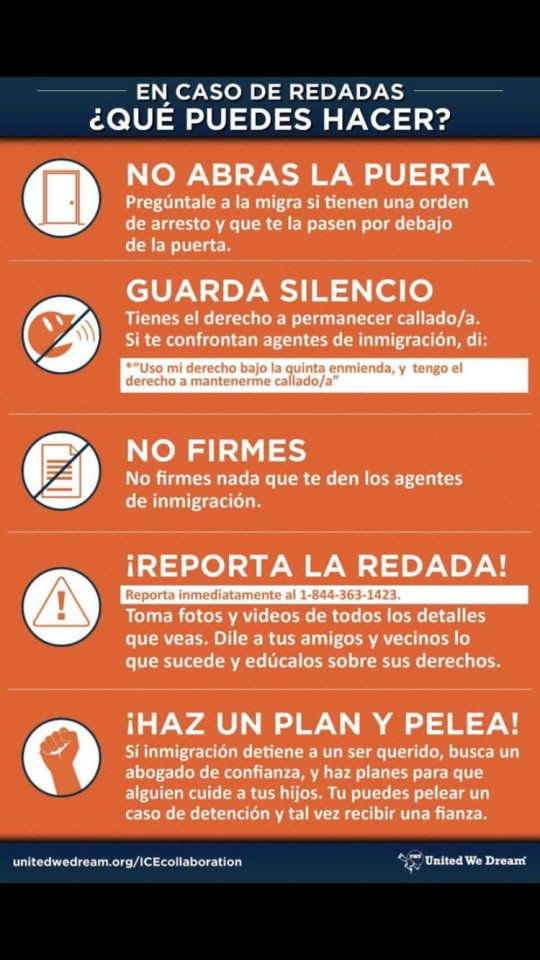
when your friend does something problematic and you sadly have to correct them

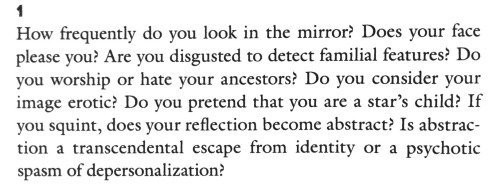






A lot of people are really scared and angry because of the results of the newest climate change reports — as they should be. But I’m already seeing a lot of posts and news reports like “HERE’S WHAT YOU CAN DO TO FIGHT GLOBAL WARMING” and bizarrely enough, the answers are never like “weed out climate change deniers from your government, impose strict new rules for the corporations that are creating most of the emissions, pour government resources into alternate forms of fuel, etc.” It’s always like “carpool to work!”
Look. Of course you should be working to reduce waste in your own life. But let’s not fucking pretend that consumers are the ones who made this mess. You know what another recent study found? Just 100 companies are responsible for 71% of global emissions. If the rest of us stopped ALL WASTE and fucking ascended to a higher plane of existence that no longer requires consumption of any kind, the world would still be absolutely fucked if those 100 companies keep on as they do.
I hate this personal responsibility model when it comes to conservation. By ignoring the actual source of the problem and focusing on individuals instead, guess who gets targeted? The absolute most vulnerable individuals on the planet. When people advocate personal responsibility, somehow they’re never talking about billionaires and their private jets. They’re creating straw bans that will make life more dangerous for people with disabilities. They’re shaming women for using disposable menstrual products. They’re criticizing the poor and destitute for using “wasteful” products because they’re all they can afford. They’re making vaguely eugenic statements about getting people in “third world countries” to stop ~breeding~ so much. It’s monstrous.
Stop shaming consumers for the sins of corporations and their powerful investors. Stop placing the blame at the feet of the people who already have the hardest time getting through life. Do something, and by “do something” I mean buy a reusable coffee cup on the way to fucking vote. Go to a protest. Call a representative. Demand accountability from the people who got us into this mess.
why tha fuck so many porn blogs follow me…..wtf you tryna jack off to? my depression?? naruto? kermit the frog memez???.. what yhe Fuck
Tips to learn a new language
The 75 most common words make up 40% of occurrences The 200 most common words make up 50% of occurrences The 524 most common words make up 60% of occurrences The 1257 most common words make up 70% of occurrences The 2925 most common words make up 80% of occurrences The 7444 most common words make up 90% of occurrences The 13374 most common words make up 95% of occurrences The 25508 most common words make up 99% of occurrences
(Sources: 5 Steps to Speak a New Language by Hung Quang Pham)
This article has an excellent summary on how to rapidly learn a new language within 90 days.
We can begin with studying the first 600 words. Of course chucking is an effective way to memorize words readily. Here’s a list to translate into the language you desire to learn that I grabbed from here! :)
EXPRESSIONS OF POLITENESS (about 50 expressions)
‘Yes’ and ‘no’: yes, no, absolutely, no way, exactly.
Question words: when? where? how? how much? how many? why? what? who? which? whose?
Apologizing: excuse me, sorry to interrupt, well now, I’m afraid so, I’m afraid not.
Meeting and parting: good morning, good afternoon, good evening, hello, goodbye, cheers, see you later, pleased to meet you, nice to have met.
Interjections: please, thank you, don’t mention it, sorry, it’ll be done, I agree, congratulations, thank heavens, nonsense.
NOUNS (about 120 words)
Time: morning, afternoon, evening, night; Sunday, Monday, Tuesday, Wednesday, Thursday, Friday, Saturday; spring, summer, autumn, winter; time, occasion, minute, half-hour, hour, day, week, month, year.
People: family, relative, mother, father, son, daughter, sister, brother, husband, wife; colleague, friend, boyfriend, girlfriend; people, person, human being, man, woman, lady, gentleman, boy, girl, child.
Objects: address, bag, book, car, clothes, key, letter (=to post), light (=lamp), money, name, newspaper, pen, pencil, picture, suitcase, thing, ticket.
Places: place, world, country, town, street, road, school, shop, house, apartment, room, ground; Britain, name of the foreign country, British town-names, foreign town-names.
Abstract: accident, beginning, change, color, damage, fun, half, help, joke, journey, language, English, name of the foreign language, letter (of alphabet), life, love, mistake, news, page, pain, part, question, reason, sort, surprise, way (=method), weather, work.
Other: hand, foot, head, eye, mouth, voice; the left, the right; the top, the bottom, the side; air, water, sun, bread, food, paper, noise.
PREPOSITIONS (about 40 words)
General: of, to, at, for, from, in, on.
Logical: about, according-to, except, like, against, with, without, by, despite, instead of.
Space: into, out of, outside, towards, away from, behind, in front of, beside, next to, between, above, on top of, below, under, underneath, near to, a long way from, through.
Time: after, ago, before, during, since, until.
DETERMINERS (about 80 words)
Articles and numbers: a, the; nos. 0–20; nos. 30–100; nos. 200–1000; last, next, 1st–12th.
Demonstrative: this, that.
Possessive: my, your, his, her, its, our, their.
Quantifiers: all, some, no, any, many, much, more, less, a few, several, whole, a little, a lot of.
Comparators: both, neither, each, every, other, another, same, different, such.
ADJECTIVES (about 80 words)
Color: black, blue, green, red, white, yellow.
Evaluative: bad, good, terrible; important, urgent, necessary; possible, impossible; right, wrong, true.
General: big, little, small, heavy; high, low; hot, cold, warm; easy, difficult; cheap, expensive; clean, dirty; beautiful, funny (=comical), funny (=odd), usual, common (=shared), nice, pretty, wonderful; boring, interesting, dangerous, safe; short, tall, long; new, old; calm, clear, dry; fast, slow; finished, free, full, light (=not dark), open, quiet, ready, strong.
Personal: afraid, alone, angry, certain, cheerful, dead, famous, glad, happy, ill, kind, married, pleased, sorry, stupid, surprised, tired, well, worried, young.
VERBS (about 100 words)
arrive, ask, be, be able to, become, begin, believe, borrow, bring, buy, can, change, check, collect, come, continue, cry, do, drop, eat, fall, feel, find, finish, forget, give, going to, have, have to, hear, help, hold, hope, hurt (oneself), hurt (someone else), keep, know, laugh, learn, leave, lend, let (=allow), lie down, like, listen, live (=be alive), live (=reside), look (at), look for, lose, love, make, may (=permission), may (=possibility), mean, meet, must, need, obtain, open, ought to, pay, play, put, read, remember, say, see, sell, send, should, show, shut, sing, sleep, speak, stand, stay, stop, suggest, take, talk, teach, think, travel, try, understand, use, used to, wait for, walk, want, watch, will, work (=operate), work (=toil), worry, would, write.
PRONOUNS (about 40 words)
Personal: I, you, he, she, it, we, they, one; myself, yourself, himself, herself, itself, ourselves, yourselves, themselves.
Possessive: mine, yours, his, hers, its, ours, theirs.
Demonstrative: this, that.
Universal: everyone, everybody, everything, each, both, all, one, another.
Indefinite: someone, somebody, something, some, a few, a little, more, less; anyone, anybody, anything, any, either, much, many.
Negative: no-one, nobody, nothing, none, neither.
ADVERBS (about 60 words)
Place: here, there, above, over, below, in front, behind, nearby, a long way away, inside, outside, to the right, to the left, somewhere, anywhere, everywhere, nowhere, home, upstairs, downstairs.
Time: now, soon, immediately, quickly, finally, again, once, for a long time, today, generally, sometimes, always, often, before, after, early, late, never, not yet, still, already, then (=at that time), then (=next), yesterday, tomorrow, tonight.
Quantifiers: a little, about (=approximately), almost, at least, completely, very, enough, exactly, just, not, too much, more, less.
Manner: also, especially, gradually, of course, only, otherwise, perhaps, probably, quite, so, then (=therefore), too (=also), unfortunately, very much, well.
CONJUNCTIONS (about 30 words)
Coordinating: and, but, or; as, than, like.
Time & Place: when, while, before, after, since (=time), until; where.
Manner & Logic: how, why, because, since (=because), although, if; what, who, whom, whose, which, that.


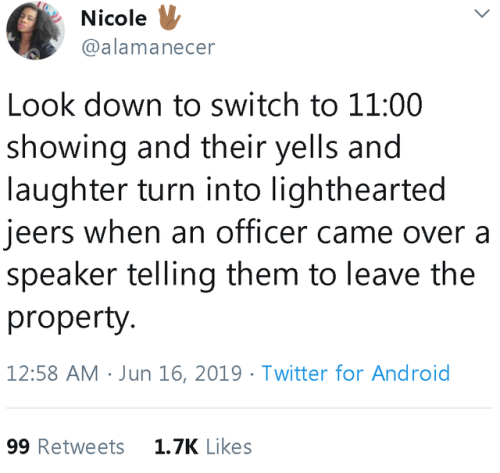
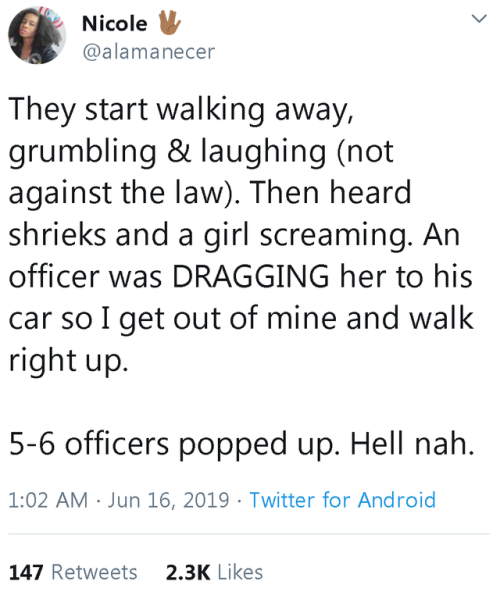
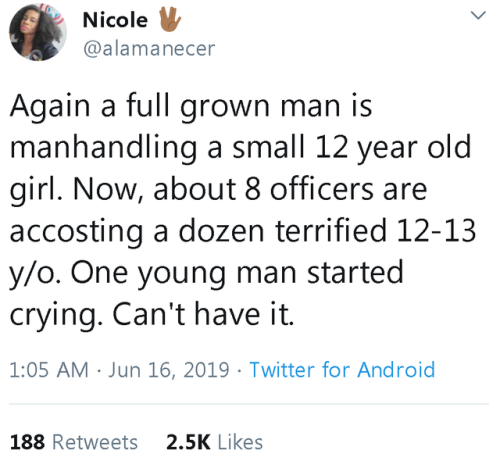

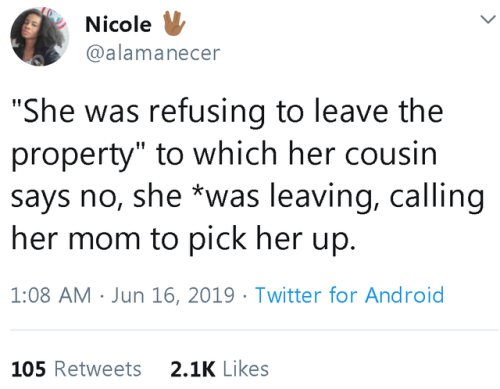

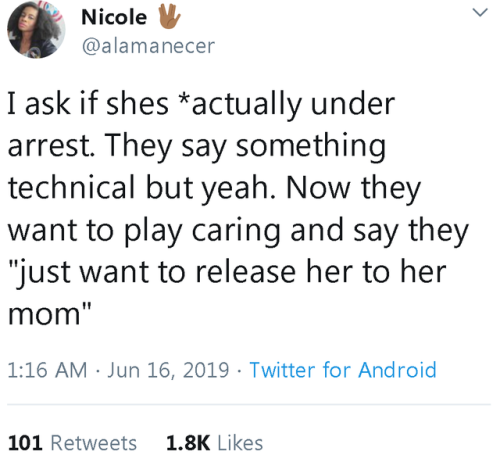
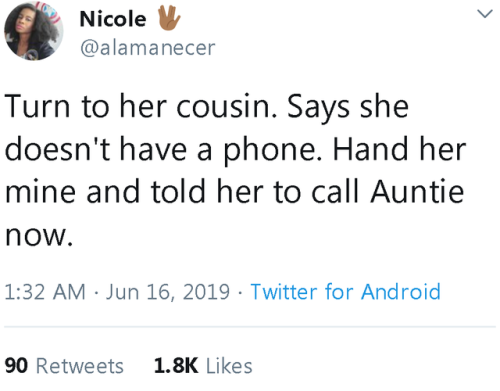































This is so powerful and courageous. Police all over the country are pulling this despicable shit. They’re supposed to be protecting and serving. Monsters.
Today's Mantra
You deserve a luxurious, high end lifestyle.
You are worthy of all the best things in life regardless of you’re upbringing or history.
Do not let your past dictate your future.
If you’ve settled before that’s ok promise yourself to NEVER do it again.
You deserve everything you want in life.
You deserve to be treated like a princess, you deserved to be spoiled, you deserve to have thousands of dollars spent on you simply BECAUSE YOU WANT IT.
Learn everything you need to know about the lifestyle you want and then go out and FUCKING GET IT.
-
 lovelybones182-blog reblogged this · 3 weeks ago
lovelybones182-blog reblogged this · 3 weeks ago -
 singularitaeten reblogged this · 3 weeks ago
singularitaeten reblogged this · 3 weeks ago -
 bekindskinnylove reblogged this · 4 weeks ago
bekindskinnylove reblogged this · 4 weeks ago -
 vitaminsmineralscalif liked this · 1 month ago
vitaminsmineralscalif liked this · 1 month ago -
 maktub190 reblogged this · 1 month ago
maktub190 reblogged this · 1 month ago -
 paigeedanielle reblogged this · 1 month ago
paigeedanielle reblogged this · 1 month ago -
 zomb0i liked this · 1 month ago
zomb0i liked this · 1 month ago -
 highjanex reblogged this · 1 month ago
highjanex reblogged this · 1 month ago -
 itzzzshelbylynn reblogged this · 1 month ago
itzzzshelbylynn reblogged this · 1 month ago -
 pbandgay93 reblogged this · 1 month ago
pbandgay93 reblogged this · 1 month ago -
 oceanbreezeandhoneybees reblogged this · 1 month ago
oceanbreezeandhoneybees reblogged this · 1 month ago -
 extrauuberry liked this · 2 months ago
extrauuberry liked this · 2 months ago -
 paigeedanielle reblogged this · 2 months ago
paigeedanielle reblogged this · 2 months ago -
 060797 liked this · 2 months ago
060797 liked this · 2 months ago -
 pbandgay93 reblogged this · 2 months ago
pbandgay93 reblogged this · 2 months ago -
 lovewithoutacause17 reblogged this · 2 months ago
lovewithoutacause17 reblogged this · 2 months ago -
 owouldntitbeloverly liked this · 2 months ago
owouldntitbeloverly liked this · 2 months ago -
 oceanbreezeandhoneybees reblogged this · 2 months ago
oceanbreezeandhoneybees reblogged this · 2 months ago -
 apologyse reblogged this · 2 months ago
apologyse reblogged this · 2 months ago -
 cinness liked this · 3 months ago
cinness liked this · 3 months ago -
 sobre-mi-y-mis-cositas reblogged this · 3 months ago
sobre-mi-y-mis-cositas reblogged this · 3 months ago -
 t-keacidseegod reblogged this · 3 months ago
t-keacidseegod reblogged this · 3 months ago -
 jasmiine-ann liked this · 3 months ago
jasmiine-ann liked this · 3 months ago -
 heavenafterhell liked this · 3 months ago
heavenafterhell liked this · 3 months ago -
 omgherbalicious reblogged this · 3 months ago
omgherbalicious reblogged this · 3 months ago -
 omgherbalicious liked this · 3 months ago
omgherbalicious liked this · 3 months ago -
 breaktherules-smilebig reblogged this · 5 months ago
breaktherules-smilebig reblogged this · 5 months ago -
 alpineblooms liked this · 5 months ago
alpineblooms liked this · 5 months ago -
 theanarchist222 liked this · 5 months ago
theanarchist222 liked this · 5 months ago -
 kissmered666 reblogged this · 5 months ago
kissmered666 reblogged this · 5 months ago -
 angelnumber27 reblogged this · 5 months ago
angelnumber27 reblogged this · 5 months ago -
 gypsygi liked this · 6 months ago
gypsygi liked this · 6 months ago -
 firewickaaflame reblogged this · 6 months ago
firewickaaflame reblogged this · 6 months ago -
 desolationofdom reblogged this · 6 months ago
desolationofdom reblogged this · 6 months ago -
 annita89ecdwc7hsh liked this · 7 months ago
annita89ecdwc7hsh liked this · 7 months ago -
 annita89rbk7rerh liked this · 7 months ago
annita89rbk7rerh liked this · 7 months ago -
 annita89toyqw9ih liked this · 7 months ago
annita89toyqw9ih liked this · 7 months ago -
 kimberlocster liked this · 7 months ago
kimberlocster liked this · 7 months ago -
 annita8942g8m51h liked this · 7 months ago
annita8942g8m51h liked this · 7 months ago -
 gualakoala503 reblogged this · 8 months ago
gualakoala503 reblogged this · 8 months ago -
 jcjala reblogged this · 10 months ago
jcjala reblogged this · 10 months ago -
 youaremyslave liked this · 10 months ago
youaremyslave liked this · 10 months ago -
 leestaats liked this · 10 months ago
leestaats liked this · 10 months ago -
 southcarolinagoddess reblogged this · 11 months ago
southcarolinagoddess reblogged this · 11 months ago
just my evolving mind depending upon magic and rhymes.
185 posts